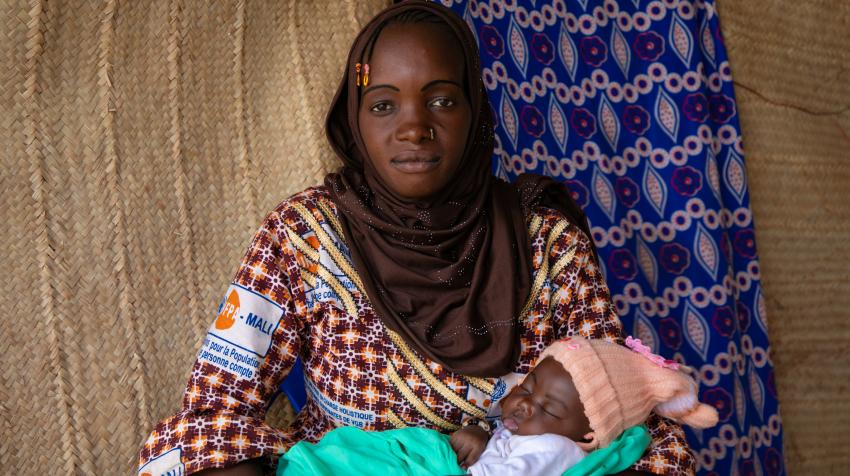The "short twentieth century", as defined by Eric Hobsbawm in 1995, was marked by important economic, social, and technical-scientific advances that improved the quality of life and health for millions of people around the world. However, as an "age of extremes" -- a phrase also coined by Hobsbawm -- the process of globalization began to create not only large international disparities, but also huge social and health problems, especially in countries excluded from the central axes of the global economy.
In the twenty-first century, the greatest causes of concern for the international community have been food insecurity, climate change, and the declining health conditions of large sections of populations which in many countries bear a "double burden of disease". They suffer not only from epidemic, emerging, re-emerging, and neglected communicable diseases, such as the big three -- HIV/AIDS, malaria, and tuberculosis -- but also from chronic non-transmissible diseases, such as cardiovascular diseases, diabetes, obesity, cancer, and mental illness.
Moreover, poverty, hunger, malnutrition, and unsatisfactory health care for mothers, children under five, and the elderly are responsible for high rates of general mortality, as well as low life expectancies at birth.
Inequities in health conditions and in access to healthcare are found both between and within countries. The so-called low- and lower-middle-income countries, some of the poorest countries in the world suffering from grim health conditions, are seriously handicapped in terms of governance and are only marginally able to formulate and implement social and health policies that effectively meet the needs of their populations. Their health systems are usually fragile, fragmented, under-financed, and lack the basic technological resources to offer adequate healthcare or carry out sufficient public health measures. This situation makes these countries highly dependent on international aid, which is crucial for their development and the life and health of their populations.
The causes of bleak life and health conditions in these countries and their inability to respond did not evolve by chance: at the root of the problem are the social and economic determinants of health and an inequitable globalization, coupled with poverty and inequity between and within countries.
Global health has been an important focus for international cooperation and foreign aid schemes, which are motivated by the various strategies of multilateral organizations, such as the Millennium Development Goals of the United Nations and its specialized agencies, and by initiatives of governments of developed countries, of emerging economies such as Brazil and China, as well as of non-governmental organizations working in the international sphere. As summarized by Anne-Emanuelle Birn: "Most initiatives in international health are not shared between 'equivalent' nations; they reflect the international political and economic order, in which international 'assistance' is 'provided' by rich and industrialized nations and 'received' by poor and underdeveloped countries. [...] The international assistance reflects geopolitical relations and replicates inequalities in power and resources."
Severe criticism of the existing foreign aid schemes of developed countries and multilateral organizations led to the High-Level Forum on Aid Effectiveness held in Paris in 2005. The Forum produced the Paris Declaration on Aid Effectiveness, which stressed the need not only to increase aid for development but also to improve its efficacy through strategies of ownership, alignment, harmonization, managing for results, and mutual accountability. The Third High Level Forum on Aid Effectiveness held three years later in Ghana, which led to the Accra Agenda for Action, and the Conference on Financing for Development held in Doha the same year, which led to the Doha Declaration on Financing for Development, improved upon the Paris Declaration.
In addition, the External Policy and Global Health Initiative launched by Brazil, France, Indonesia, Norway, Senegal, South Africa, and Thailand in 2007 produced the Oslo Declaration, calling countries to prioritize health in their foreign policies. In response, in 2008, the UN General Assembly, in resolution 63/33 on Global Health and Foreign Policy, recognized the close relationship between both fields, determined that the Economic and Social Council (ECOSOC) in its July 2009 session address the "achievement of the objectives and commitments agreed upon internationally regarding the global public health", and requested greater coordination of health initiatives within the UN system.
The Ministerial Declaration on Global Public Health, a lengthy document that emerged from the 2009 ECOSOC High-Level Segment in Geneva, announced a comprehensive agenda for governments, UN agencies, and global civil society on global health, which was later negotiated by UN Member States.
SOUTH-SOUTH COOPERATION
IN HEALTH South-South cooperation is any kind of economic, commercial, and social partnership ideally established with multiple advantages for all partners, usually from the developing world, in the southern hemisphere.
The political movement around South-South cooperation started in the 1950s, at the height of the cold war. The Asian-African Conference held in 1955 in Bandung, Indonesia can be considered the first political milestone. With the Non-Aligned Movement established at the Belgrade Conference in 1961, and with the emergence of the Group of 77 in 1964, the basic framework for the development of political consensuses among developing countries was established.
In 1978, the UN Conference on Technical Cooperation among Developing Countries drafted the Buenos Aires Plan of Action, an essential landmark in South-South cooperation, followed by the establishment of the Special Unit for South-South cooperation within the United Nations Development Programme.
In the 1990s, but more so in the first decade of the twenty-first century, middle- or upper-middle-income countries such as Brazil, China, Cuba, India, Nigeria, South Africa, and Venezuela emerged as relevant international political actors and soon thereafter in the world of South-South cooperation. These countries used human and technological resources, the so-called "soft power" as described by Joseph Nye, to cooperate among themselves, instead of the traditional political or military arrangements. Agriculture, health, education, and institutional development are among the fields covered by South-South cooperation.
Regional arrangements networking neighbouring countries in the southern hemisphere also play a fundamental role in South-South cooperation. The Association of Southeast Asian Nations, the African Union and the New Partnership for Africa's Development, and the Union of South American Nations are a few examples that should be paid attention. South-South solutions have been sought even in communities only culturally linked, such as the Community of Portuguese-Speaking Countries.
In a complex world facing a significant economic crisis, international cooperation in health, whether through a traditional North-South approach or South-South cooperation or the triangular North-South-South, orientation, brings hope to the countries and populations of the world most in need.
REFERENCES Birn, Anne-Emanuelle, Pillay, Yogan, Holtz, Timothy H. "International Health Agencies", Textbook of International Health. Oxford, 3rd. ed., p.62-63, 2009.
Buss, Paulo M., Ferreira, José R. "Critical essay on international health cooperation", Revista Eletrônica de Comunicação, Informação e Inovação em Saúde (RECIIS) 4 (1), 2010. http://www.reciis.cict.fiocruz.br/index.php.reciis/issue/current.
Nye, Joseph. "Public diplomacy and soft power", The Annals of the American Academy of Political and Social Science 616 (1): p.94-109, 2008.
The UN Chronicle is not an official record. It is privileged to host senior United Nations officials as well as distinguished contributors from outside the United Nations system whose views are not necessarily those of the United Nations. Similarly, the boundaries and names shown, and the designations used, in maps or articles do not necessarily imply endorsement or acceptance by the United Nations.




